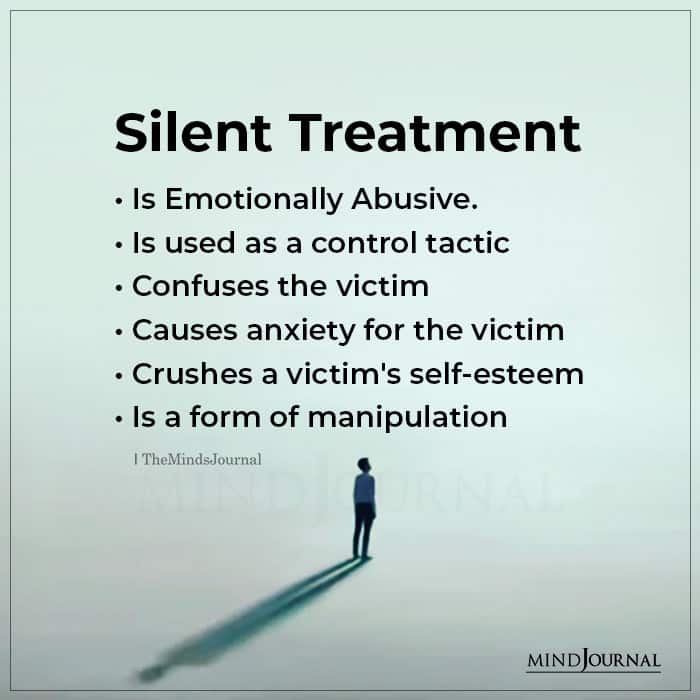When in a relationship, do you tend to be passive-aggressive and give silent treatment when upset, instead of talking about your feelings?
Recognizing behavior flaws such as a passive-aggressive communication style in others, particularly your partner, is usually easier than acknowledging your own shortcomings. Countless people are hostile in passive ways, yet, many have no idea that their conduct could be described in such a manner.
You may be passive-aggressive if you sulk, conveniently forget to do things for a spouse you are upset with, or you are aware that you are exceedingly uncomfortable around anger.
If you are passive-aggressive, chances are it is damaging your marriage and other close relationships.

What is passive-aggressiveness?
Passive aggressiveness emerges as hostility that is not openly aired, at least not verbally.
Someone might “forget” to do something for a person they hold a hidden grudge against. Alternatively, he or she may take a long time to perform such tasks, be late constantly, make faces behind someone’s back, or engage in a variety of other antagonistic behaviors. In close and intimate relationships such as marriage, a spouse might withhold affection, eye-roll and “huff and puff” instead of openly expressing anger. Alternatively, the spouse will make their partner’s life difficult in some other manner.
Passive-aggressiveness often arises in response to your partner’s demands and requests. Or, you are unhappy about some aspect of the relationship and are not directly expressing this.
Read 11 Signs It’s An Emotionally Abusive Relationship
What makes people passive-aggressive?
Much of the time, demonstrating hostility in such an indirect or complicated way stems from childhood. Children who are taught that anger is a terrible emotion or ridiculed when they reveal their temper, get the message that exhibiting strong emotions (such as anger) overtly is unacceptable.
Children then fail to learn how to adequately express feelings that they perceive as undesirable. Sometimes, even a belief that they are incompetent and imagine that they will not be taken seriously if they show anger. On other occasions, they may be afraid that their anger could spark rage from someone else, which they won’t be able to manage. Expressing anger verbally is difficult for such individuals since they do not possess the necessary communication skills.
Does this sound like you?
If you think you may be passive-aggressive, do not panic! This does not make you “defective.” Displaying hostility passively means you have not learned more efficient and effective ways of communicating.
And, let’s face it, your behavior does not usually afford you what you want.
Read 6 Steps To Disarm The Silent Treatment Without Making it Worse
Can you change the way you communicate?
While altering a life-long habit may not be an easy task, it is definitely possible – and well worth the effort – to develop assertive communication skills and learn how to handle anger effectively and express yourself.
The first step is to recognize the unhealthy behavior you display when you are angry. Each time you feel the urge to carry out similar practices in the future, stand back, and take inventory of your actions. Ask yourself whether there are alternate ways you could express how you feel that are likely to be beneficial and more readily get your needs met.
Telling your partner that you are angry and what is bothering you is a healthy way to respond.
There are positive ways to do so that do not involve blame. Begin by saying how his or her actions make you feel, and if relevant, how the behavior is detrimental to your well-being. Avoid shouting, swearing, accusing, and name-calling at all costs. Instead, begin sentences with “I” and follow with a factual description of why you feel hurt.
Poor communication patterns such as passive-aggressiveness are not that uncommon since many people act out their hostility rather than communicating verbally on occasion. Nevertheless, when doing so is repetitious, meaningful relationships—such as your marriage—can slowly crumble and break down. Learning how to express yourself in constructive ways can rebuild damaged relationships and prevent them from falling apart.
Do you need help with your assertive communication? As a couples therapist, I do this all the time! Feel free to reach out to me for help.
For many people, being passive-aggressive is a better option than indulging in a full-blown fight. You might feel that it is less draining to withdraw and not talk about the things that bother you. But festering emotions can create more problems than before, in your relationship. So instead of staying silent, talk about what hurt you or affected you and try to find out a solution together.
Written By Dr. Marni Feuerman Originally Appeared In The Talking Solution Republished with permission











Leave a Reply